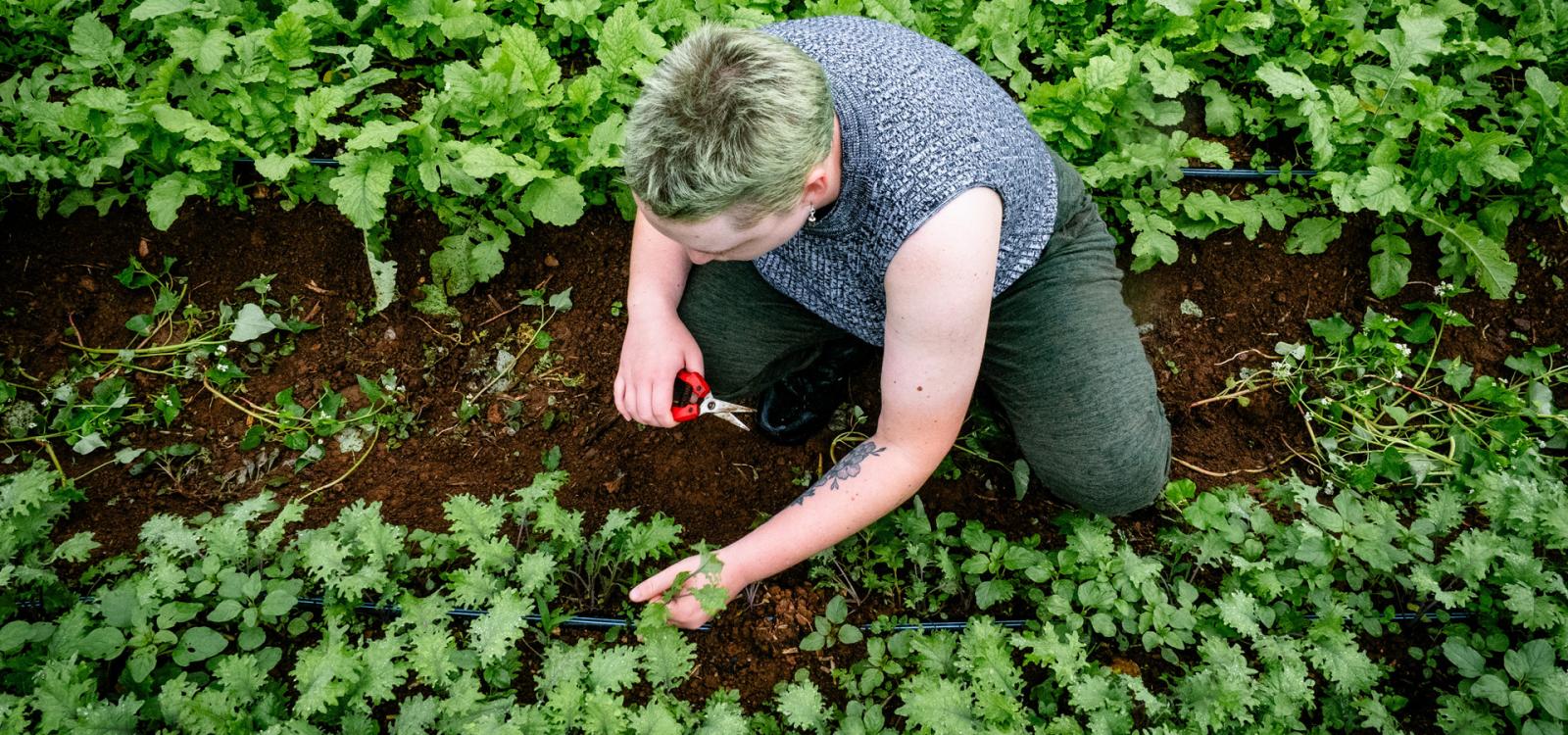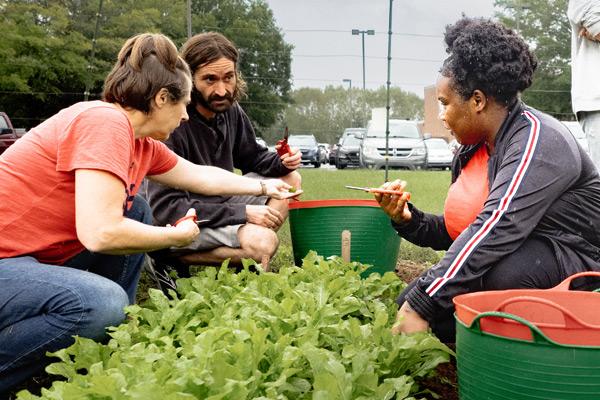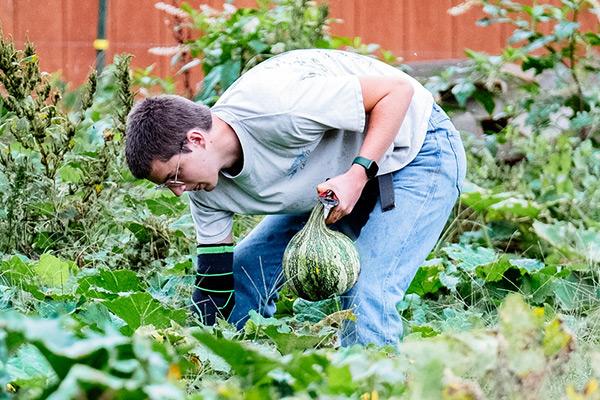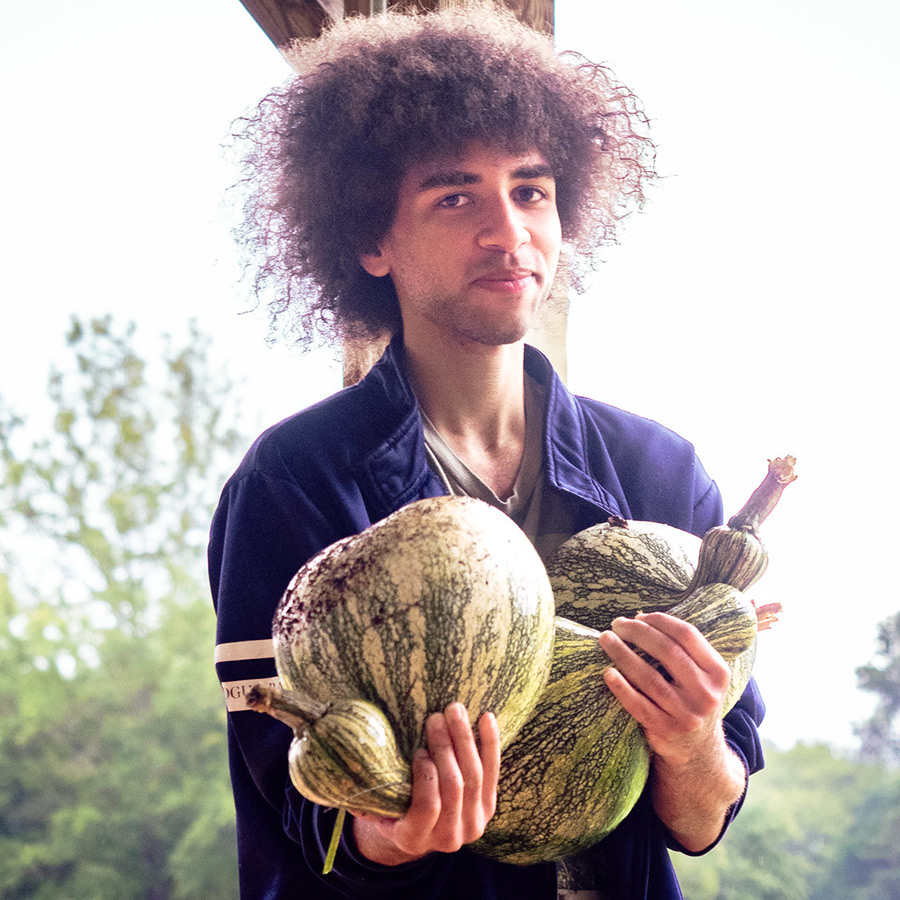

Sustainable Agriculture

STEM
Build a sustainable future through agriculture—plant the seeds of change!
What You’ll Learn
The Sustainable Agriculture associate degree prepares students for work in a variety of food and sustainability fields, including farm management, advocacy and education, work in wholesale and retail produce, as well as the option to transfer to university agroecology and sustainability programs.
As with many other rewarding professions, sustainable, regenerative agriculture is both physically and mentally challenging. Students of regenerative agriculture learn to grow healthy, nutrient dense food outdoors in the soil. Students will be prepared for the future in technical and technological skill sets, to be able to think critically and creatively to solve real world problems, and to be competent in good communication and record-keeping skills.
This certificate program is designed to give students a diverse experience in the practical application of regenerative management skills for crop, livestock, and whole farm systems. All certificates are part of the AAS and may count toward the associate degree.
Students who pursue this certificate have the opportunity to explore the role of livestock in regenerative systems through classroom learning and guided field trips. Students visit local farms where regenerative practices are employed, high animal welfare standards are in place, and sustainability through local and direct marketing is the norm. All certificates are part of the AAS and may count toward the associate degree.
Real farming, right now. This certificate is focused on certified organic crop production skills and is designed to provide solid, practical experience for year-round vegetable crop production, post-harvest handling, and marketing skills. Students participate in all aspects of crop production at the on-campus, certified organic farm. All certificates are part of the AAS and may count toward the associate degree.
This certificate is designed to give students the tools necessary to become competent practitioners of ecological gardening and effective land stewards. Courses in plant science, plant propagation, biological pest management and design are paired with hands-on gardening labs and opportunities to tour and understand the key principles of ecological landscaping with professionals.
Why Study Sustainable Agriculture at CCCC?
Immersive and Collaborative Learning
Students work with instructors and peers at the certified organic farm on campus, balancing hands-on experience and scientific inquiry. Growing healthy local food while building lifelong skills and relationships is a focus of the program.
Connections and Relationships
A network of local farms, businesses, and agricultural professionals support students and provide rewarding work-based learning opportunities.
Diverse Skills Transfer
A science-based curriculum with a real work, real world component serves as the starting point for a range of careers and further academic exploration. Since 2002, CCCC’s Sustainable Agriculture program has served students with the most practical and affordable agricultural education in its class.

More Helpful Links for This Program


Careers
Graduates of the Sustainable Agriculture program have gone on to work in a variety of food and sustainability fields, including farm management, advocacy, and education, work in wholesale and retail produce, as well as the option to transfer to university agroecology and sustainability programs.
- Farm Manager
- Local Produce Procurement
- Native Plants Nursery Management
Program Contact
Our Students In Action

We’re Here to Help
Want to talk to an advisor about requirements and classes, or get more details on jobs in this industry?
Transfer Programs
Credits from select courses within the program may transfer to four-year colleges and universities on a case-by-case basis.
